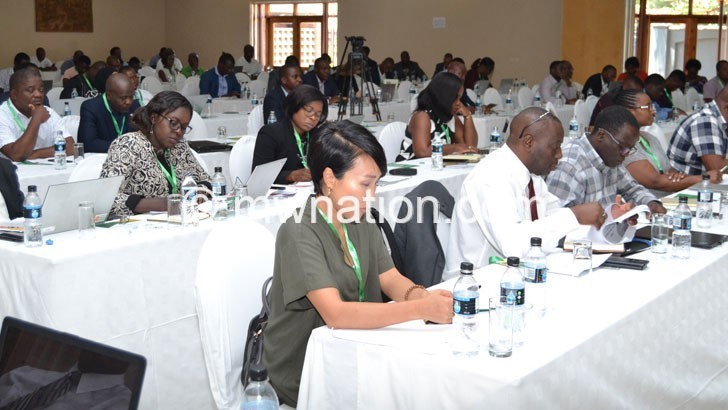Economists bemoan population growth
Economists have bemoaned the country’s high population growth, resulting in “too many people producing little output” in terms of gross domestic product (GDP) compared to other neighbouring countries.
Speaking yesterday in Mangochi at the ongoing Economics Association of Malawi (Ecama) Annual Lakeshore Conference, the economists said the country’s huge population is burdening Treasury to finance basic social services such as education and health rather than directing the resources towards investment.

Ecama executive director Maleka Thula ignited debate when he told delegates that Malawi’s estimated GDP at $7 billion (about K5.1 trillion) is only contributing about 0.3 percent to total GDP for Africa, which is valued at $2.2 trillion.
He said the country’s population at 17.6 million is equivalent to 1.5 percent of Africa’s population of about 1.2 billion.
“This shows that Malawi’s population is growing faster than its economy and its contribution to total African economy. The picture looks worse if we compare Malawi with neighbouring Zambia,” said Thula.
Zambia, which is 752 618 square kilometres in geographical size, is over six times the land size of Malawi, but its population is lower than that of Malawi at 17 million.
Zambia’s nominal GDP is estimated at $24 billion (about K18 trillion).
Said Thula: “The question we need to answer is why our population is so high, but we are producing so little and then how can we use this high population as impetus for growth?”
Quoting economic theory, Thula said by creating a huge government obligation to finance basic social services, high population growth ultimately affects a country’s fiscal balance by causing high budget deficit, high government borrowing, increases government debt, causes exchange rate volatilities due to increased trade deficit and disturbs macroeconomic stability.
On the flipside, he said proponents of population growth believe that an increasing population means an increase in the number of working population who can function as active participants in the process of economic growth and development while at the same time a growing market for goods and services.
In her presentation, United Nations Population Fund resident representative Young Hong, who was also a keynote speaker, said it was shocking to note that Malawi’s population grew by 35 percent between 2008 and 2018.
She said what is important is the profile and structure of the population, citing an example of India which she said used to be one of the poorest countries on earth, but now is more advanced.
On her part, International Monetary Furnd (IMF) country representative Farai Gwenhamo said she was pleased that the conference is discussing population impact on Malawi’s economic development as a key topical issue, adding that high population growth is not only a challenge in Malawi, but also in sub-Saharan Africa.
National Statistical Office (NSO) figures show that Malawi has one of the fastest growing populations within the region and beyond, at 17.6 million, with majority of the population comprising the youth.




